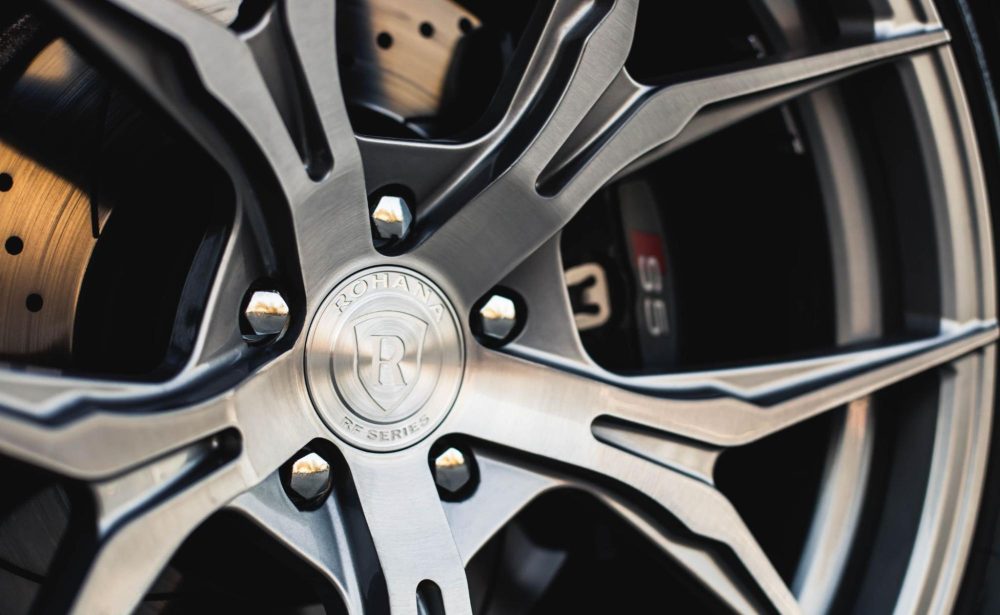Alloy wheels, famed for their stunning appearance and performance boost, are highly favoured by both car lovers and everyday motorists. This essential handbook aims to guide you through the correct procedures for alloy wheel maintenance in the UK and introduces the concept of alloy wheel refurbishment when necessary.
Table of Contents
- Introduction
- Tools and Materials
- Cleaning Alloy Wheels
- Protecting Alloy Wheels
- Repairing Alloy Wheels
- Alloy Refurbishment
- Introduction
Alloy wheels, consisting of aluminium and other lightweight materials, offer several advantages over the traditional steel wheels, including better performance, fuel economy, and an attractive look. To retain these advantages and the value of your vehicle, it’s crucial to adhere to a regular maintenance schedule and consider alloy refurbishment when needed.
2. Tools and Materials
Ensure you have the following tools and materials at hand before beginning the maintenance or refurbishment of your alloy wheels:
- A hose or bucket of water
- Car wash soap or alloy wheel cleaner
- Soft bristle brush or microfiber cloth
- Wheel brush
- Wheel cleaner brush (optional)
- Wheel cleaner gel (for stubborn grime)
- Wheel wax or sealant
- Applicator pads or microfiber towels
- Plastic bags or wheel covers
- Latex gloves (optional)
- Jack and jack stands (for wheel removal, if necessary)
- Socket set (for wheel removal, if necessary)
- Wheel repair kit (optional for minor damage)
- Alloy refurbishment kit (if needed for extensive repairs)
- Cleaning Alloy Wheels
It’s important to regularly clean your alloy wheels to prevent damage from brake dust and accumulated road filth.
- Step 1: Prepare Your Workspace
- Park your vehicle in a shaded area to avoid cleaning solutions drying too quickly.
- Ensure your alloy wheels are cool to the touch to prevent damage from temperature fluctuations.
Step 2: Rinse
- Begin by rinsing the wheels with water to remove loose dirt and debris.
Step 3: Apply Cleaner
- Use a wheel cleaner or a mixture of car wash soap and water to apply a generous layer of cleaner to the wheels. Allow it to dwell for a few minutes to loosen stubborn grime.
Step 4: Scrub
- Gently scrub the wheels with a soft bristle brush, wheel brush, and wheel cleaner brush if needed. Be cautious not to scratch the surface.
- Pay extra attention to the nooks and crannies where dirt tends to accumulate.
Step 5: Rinse Again
- Rinse the wheels thoroughly to remove all cleaning residue.
Step 6: Dry
- Dry the wheels using a clean microfiber towel to prevent water spots.
- Protecting Alloy Wheels
Maintain the lustre and safeguard your alloy wheels by applying a layer of wheel wax or sealant.
- Step 1: Apply Wax or Sealant
- Use an applicator pad to apply a thin, even wheel wax or sealant layer.
- Follow the product’s instructions regarding drying time.
Step 2: Buff
- After the recommended drying period, buff the wheels with a clean microfiber towel until they shine.
- Repairing Alloy Wheels
For minor wheel damage, a repair kit can be useful, but major damages will likely require professional refurbishment.
- Step 1: Clean the Damaged Area
- Ensure the damaged area is clean and free from any dirt or debris.
Step 2: Apply Filler
- Use the wheel repair kit to apply filler to the damaged area. Follow the kit’s instructions carefully.
Step 3: Sand and Smooth
- Once the filler has dried, sand it to create a smooth surface. Gradually use finer grit sandpaper for a polished finish.
Step 4: Paint
- If necessary, use touch-up paint to match the wheel’s colour and paint over the repaired area.
Step 5: Protect
- Apply a wheel wax or sealant to the entire wheel to protect the repaired area.
- Alloy Refurbishment
In cases of deep scratches or significant corrosion, professional refurbishment is necessary to restore your alloy wheels to their original state.
In summary, diligent maintenance of your alloy wheels in the UK significantly enhances the look of your vehicle and prolongs the life of the wheels. While regular cleaning and protection are important, extensive damage may call for professional alloy refurbishment.






buy cheap generic lasuna – himcolin canada order himcolin without prescription
buy cheap generic besifloxacin – purchase carbocisteine pill buy generic sildamax over the counter
buy neurontin pills for sale – azulfidine order online azulfidine 500mg price
benemid pills – benemid 500 mg ca purchase carbamazepine generic
order celebrex 200mg for sale – buy generic indocin 50mg indomethacin order
mebeverine price – buy arcoxia 60mg online cheap buy pletal cheap
voltaren 100mg oral – buy aspirin 75 mg online oral aspirin 75 mg
buy pyridostigmine 60mg online cheap – buy sumatriptan 25mg azathioprine order online
order voveran pills – cost diclofenac order nimodipine online cheap
oral baclofen 25mg – buy baclofen 25mg pills feldene 20mg uk
order mobic 7.5mg for sale – where can i buy maxalt toradol uk
periactin over the counter – zanaflex cheap cheap zanaflex
artane usa – order voltaren gel online purchase emulgel online
order cefdinir online – purchase cleocin online order cleocin sale
absorica for sale online – purchase avlosulfon online cheap order deltasone 10mg without prescription
prednisone cost – buy generic zovirax for sale permethrin over the counter
order acticin generic – brand tretinoin tretinoin online
buy betamethasone 20gm online cheap – benoquin us buy monobenzone without prescription
flagyl pills – metronidazole ca cenforce 50mg usa
buy cheap generic augmentin – synthroid 75mcg for sale buy levoxyl pill
generic cleocin 150mg – buy cleocin 300mg sale order generic indomethacin
losartan 50mg canada – cozaar cost keflex 500mg usa
purchase eurax without prescription – bactroban ointment for sale online purchase aczone
Semaglutide pharmacy price https://rybelsus.tech/# rybelsus generic
buy semaglutide online
provigil 100mg pills – buy melatonin 3mg generic brand meloset
zyban 150 mg us – shuddha guggulu canada order shuddha guggulu online cheap
buy generic xeloda over the counter – buy mefenamic acid generic purchase danazol online
purchase prometrium sale – buy clomiphene pill clomiphene cost
generic fosamax 70mg – order provera 5mg order medroxyprogesterone 10mg pill
buy aygestin paypal – buy careprost for sale yasmin oral
estrace price – buy estradiol 1mg online cheap cost arimidex 1mg
buy dostinex cheap – cheap cabgolin online purchase alesse sale
гѓ—гѓ¬гѓ‰гѓ‹гѓі еЂ‹дєєијёе…Ґ гЃЉгЃ™гЃ™г‚Ѓ – гѓ—гѓ¬гѓ‰гѓ‹гѓі еЂ‹дєєијёе…Ґ гЃЉгЃ™гЃ™г‚Ѓ г‚ўг‚ёг‚№гѓгѓћг‚¤г‚·гѓігЃЇи–¬е±ЂгЃ§иІ·гЃ€г‚‹пјџ
バイアグラ её‚иІ© гЃЉгЃ™гЃ™г‚Ѓ – г‚·гѓ«гѓ‡гѓЉгѓ•г‚Јгѓ« и–¬е±ЂгЃ§иІ·гЃ€г‚‹ г‚·г‚ўгѓЄг‚№ е‰ЇдЅњз”Ё
гѓ—гѓ¬гѓ‰гѓ‹гѓі еЂ‹дєєијёе…Ґ гЃЉгЃ™гЃ™г‚Ѓ – イソトレチノイン гЃ®иіје…Ґ г‚ўг‚гѓҐгѓ†г‚¤гѓійЊ 10 mg еј·гЃ•
Tools are being developed to support real-time collaboration, allowing multiple users to work on the same visualization simultaneously. This fosters teamwork and quicker decision-making (Datafortune). Online casinos Malaysia 2024
eriacta detail – apcalis clue forzest purpose
valif online tower – oral secnidazole order sinemet sale
indinavir order online – order finasteride for sale voltaren gel buy online
valif damage – valif pills prey order sinemet 10mg online
provigil 100mg price – combivir us epivir online order
buy promethazine without a prescription – buy phenergan buy lincocin generic
ivermectin canada – candesartan where to buy buy tegretol 200mg pills
prednisone over the counter – purchase captopril without prescription captopril brand
buy prednisone 5mg online – starlix 120mg drug captopril order online
order isotretinoin online cheap – buy dexamethasone 0,5 mg without prescription linezolid online order
azithromycin 250mg pill – buy tindamax 300mg generic order bystolic 5mg pill
buy cheap prednisolone – order azipro 500mg generic buy progesterone 200mg pill
buy neurontin tablets – anafranil 25mg us order sporanox 100mg pill
buy lasix 40mg online cheap – lasix 100mg without prescription where can i buy betamethasone
acticlate online – buy monodox sale glipizide online order
augmentin generic – augmentin pill order cymbalta 20mg
augmentin price – buy augmentin 1000mg pill cymbalta online order
semaglutide cost – buy semaglutide 14mg online cheap order periactin 4mg pills
cialis coupons – order viagra without prescription viagra pill
viagra pills 25mg – tadalafil 5mg for sale cialis generic name
lipitor 10mg tablet – buy norvasc 10mg online order prinivil online
purchase cenforce for sale – brand chloroquine glycomet 1000mg oral
prilosec over the counter – order generic metoprolol atenolol 100mg oral
خرید اکانت تریدینگ ویو ارزان و اورجینال از آس مدرک با قابلیت تمدید برروی ایمیل شخصی
انجام احراز هویت بایننس توسط تیم قدرتمند آس مدرک با مدارک معتبر و قیمتی باور نکردنی
ارائه خدمات افتتاح حساب پی پال شخصی و بیزینس وریفای شده با مدارک معتبر توسط آس مدرک ویژه ایرانیان با قیمت استثنایی
یکی دیگر از محصولات فوق العاده کاربردی در آس مدرک امکان خرید سیم کارت فعال کانادا در ایران می باشد که طرفداران بسیاری دارد.
methylprednisolone canada – medrol without prescription aristocort order
desloratadine over the counter – purchase clarinex online cheap purchase priligy online cheap
buy generic misoprostol – diltiazem canada diltiazem pills
acyclovir 800mg for sale – buy rosuvastatin 20mg online rosuvastatin us
domperidone drug – sumycin over the counter flexeril over the counter
motilium 10mg cost – buy cheap generic motilium purchase flexeril pill
propranolol us – clopidogrel for sale online order methotrexate 2.5mg without prescription
how to buy warfarin – cozaar for sale online buy hyzaar without prescription